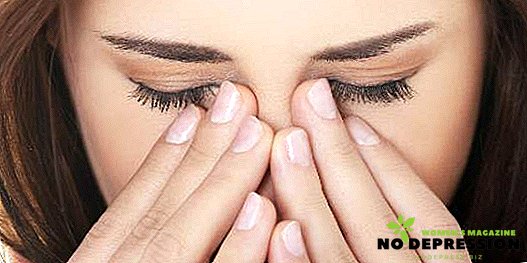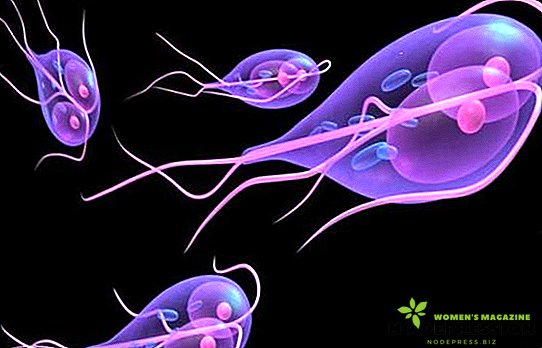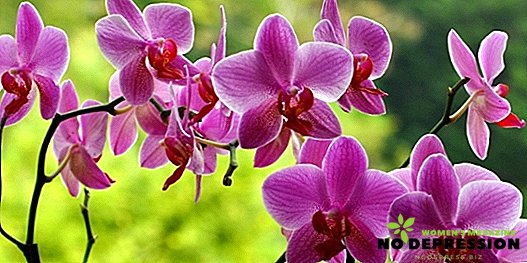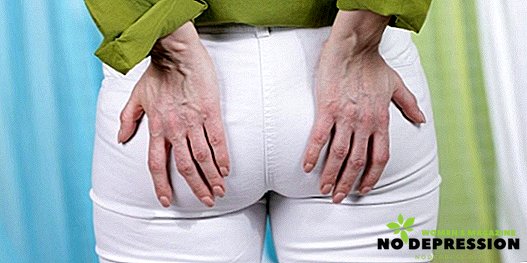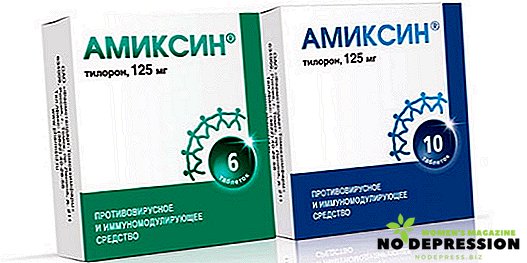Cystitis is a fairly common inflammatory disease that affects the urinary tract and bladder. Often the cause of the disease are insidious microbes and pathogens that are able to penetrate the urinary system, activating the inflammatory process.
In eighty percent of all cases, the pathology is recorded among the females, which is due to the peculiarities of the anatomical structure of the urethra. Despite the statistics, cystitis is also found among the representatives of the stronger sex, for a number of reasons.
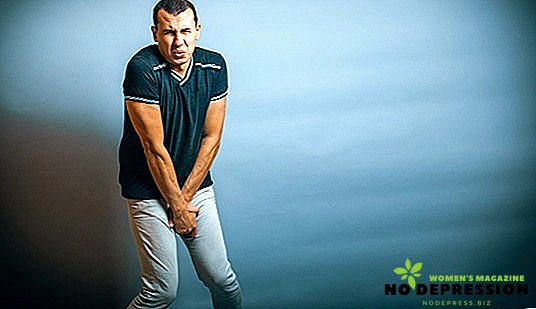
Does cystitis in men
Most people are accustomed to thinking that cystitis is a purely female disease, but this is a stupid delusion that is worth refuting. Inflammation of the bladder occurs in men of any age, social status. Such an inflammatory process not only affects the urogenital system, but also significantly impairs its function. Frequent and painful urination, the presence of pain in the area above the pubis, and the presence of impurities in the urine indicate the development of pathology.
With regard to the diagnosis of the disease, for the formulation of the correct diagnosis, ultrasound of the bladder, bacteriological and microscopic examination of urine is carried out. Mandatory cystography and cystoscopy. Regarding the therapeutic course, the priority is an integrated approach consisting of herbal medicine, antibiotics, symptomatic treatment and physiotherapy.
Cystitis in men is manifested against the background of activation of the infection, since harmful microorganisms and bacteria provoke the development of the inflammatory process after penetration into the cavity of the bladder. The development of inflammation due to reduced immunity, it is important to observe intimate hygiene, as well as to empty the bladder before and after intercourse.
Symptoms of the disease
 Interestingly, only 0.5% of all males are diagnosed with cystitis, most often over the age of forty. The rarity of the disease among men is due to the anatomical structure of the urethra, as it is narrow, long and curved, so the infection lingers in the canal itself, without penetrating into the bladder.
Interestingly, only 0.5% of all males are diagnosed with cystitis, most often over the age of forty. The rarity of the disease among men is due to the anatomical structure of the urethra, as it is narrow, long and curved, so the infection lingers in the canal itself, without penetrating into the bladder.
The main symptoms of an acute inflammatory process are nocturia, namely, frequent and painful urination, the presence of imperative urges and dark urine, the manifestation of terminal hematuria. The accompanying signs are low performance, chills and fever, as well as fever.
In addition to the painful sensations that occur at the beginning and end of urination, patients are disturbed by a painful burning sensation, cramps, manifested in the urethra. Intense pain may be felt above the pubis, in the penis, in the groin and scrotum. As for a single volume of urine, it is reduced to twenty, and sometimes to ten milliliters. In some situations even incontinence may develop.
The typical symptoms of the disease among men include pyuria, hematuria, and leukocyturia. Against the background of exacerbation, intoxication of the whole organism develops, which is provoked by oliguria and increased body temperature. The patient’s urine becomes dark and cloudy, a putrid odor appears, fibrin and blood, particles of the mucous membrane may be present.
Symptoms of chronic cystitis
Regarding chronic inflammation of the bladder in men, the pathology appears slightly different. For this form of the disease, there is a scant set of pathogenic symptoms that are consistently continuous or undulating. Against the background of chronic cystitis, the process of urination is not very frequent and painful, however, microhematuria, proteinuria and leukocyturia persist, and the urine contains mucus.
Do not forget that there may be complications, mainly pyelonephritis, paracystitis, as well as the development of sclerosis of the bladder walls, a sharp decrease in its volume.
Is cystitis transmitted from woman to man
Many people worry about whether the cystitis is sexually transmitted or not. It is important to remember that cystitis is an inflammation of the bladder, which was the result of the penetration and activation of the infection. The factors predisposing to the development of pathology include:
- weakened immune system;
- sedentary lifestyle;
- improper intimate hygiene;
- hypothermia;
- the presence of chronic, acute pathologies of the genitourinary system.
Many people associate the development of cystitis with sexual intercourse, since the pathogenic symptoms occur immediately after it. You can become infected with pathology against the background of a weakened immunity, which is facilitated by oncology, as well as the use of immunosuppressants, in such cases the disease is infectious.
It is important to remember that cystitis cannot be transmitted sexually from a woman to a man. The only thing that is transmitted is genital infections, which can cause an inflammatory process that affects the urogenital system.
Disease Treatment
In the event of an acute form of the disease among men, it is imperative to observe bed rest, it is shown warm and abundant drinking, namely 2.5 liters per day.
From the diet should be removed spicy, spicy, sour and salty products, alcoholic beverages, as well as to avoid sexual contact. If there is an acute urinary retention, excruciating and unbearable pain, you can not do without emergency hospitalization.
As for etiotropic therapy, antibacterial agents will be needed. These are mainly nitrofurans, cephalosporins and fluoroquinolones, and penicillin is least commonly prescribed. The duration of antimicrobial therapy lasts at least five to seven days. In this situation, you can not do without the use of herbal uroseptikov and herbal medicine.
 In order to stop the pain syndrome of different intensity, you will need non-steroidal anti-inflammatory drugs (NSAIDs) in the form of tablets and injections, and you can not do without powerful and safe antispasmodic drugs.
In order to stop the pain syndrome of different intensity, you will need non-steroidal anti-inflammatory drugs (NSAIDs) in the form of tablets and injections, and you can not do without powerful and safe antispasmodic drugs.
In some cases, the bladder is washed with antiseptic agents.
The following blockades can be used: intravesical, prebasic, and also presacrally novocainic. After the elimination of pain, therapy should be supplemented by physiotherapy. To do this, we need full-fledged sessions of electrophoresis, ultrasound and inductothermy, mud applications, magnetic laser therapy.
If a man finds a concomitant urological disease, it is important to eliminate it in a timely manner. We are talking about prostatitis, pyelonephritis, urolithiasis and prostate adenoma, epididymoorchitis and adenomectomy.
Pain Relievers
To stop the pain syndrome, you can use popular analgesics, namely Pentalgin and Baralgin. It is very important that discomfort and pain do not recur, therefore analgesics alone will not suffice. The fact is that you need to have an impact on the true cause of the inflammatory process, namely the infection. What can only antimicrobials, which are prescribed exclusively by the treating doctor, can cope with.
In addition, pain can manifest itself due to a spasm of the smooth muscle of the bladder, which is a consequence of the inflammatory process. Prolonged spasms noticeably disturb the blood circulation, complicate the outflow of urine, which provokes congestive processes and hellish pains. To eliminate them and alleviate the condition, you can use antispasmodics, mainly papaverine rectal suppositories and No-Shpa tablets.
To combat rezami, burning, which appear on the background of irritation of nerve fibers and endings, you can not do without Tempalgin, Nimesil, Butadion, Baralgin. Special attention should be paid to such a drug as Pentalgin, since he has an analgesic and antispasmodic type of effect.
Antibiotic use
To eliminate the infection can not do without powerful antimicrobial agents. To this end, you should pay attention to the following antibacterial drugs:
- 5-NOK;
- Biseptol;
- Nitroxoline;
- Unplayed;
- Urosulfan;
- Furagin;
- Sulfadimethoxine;
- Tubazid;
- Furazolidone;
- Rifampicin.
 It is possible to combine the listed means, but it is worth considering their toxicity to the liver and tissues of the bladder.
It is possible to combine the listed means, but it is worth considering their toxicity to the liver and tissues of the bladder.
It is accepted to prescribe antibiotics for seven to ten days, but if there is no sensitivity of the flora, then it is necessary to use stronger drugs.
Fluoroquinolones are the most common medications for bladder inflammation in men.
Representatives of this group can be considered the following drugs:
- Nolitsin;
- Lomefloxacin;
- Norfloxacin;
- Moxifloxacin.
Treatments, herbal medicine
Painkillers help relieve the patient's condition, but there are times when they do not help or are simply contraindicated. In such cases, thermal procedures will help, which can be easily performed at home:
- foot baths;
- heating pad attached to the lower abdomen.
Herbal medicine plays an important role in the treatment of cystitis in men. To do this, you can use some proven recipes:
- Brew leaves lingonberries. On a glass of boiling water - a tablespoon of raw materials, leave for fifteen minutes.
- Grind the bird mountaineer, pour boiling water, keeping the ratio one to ten, keep on the steam bath for ten minutes.
- In a glass of boiling water brew a tablespoon of Hypericum and insist for half an hour.
- Fresh leaves, berries of cloudberries in the volume of a tablespoon brew in 200 ml of boiling water, leave for fifteen minutes and drink as tea.
- One hundred grams of chopped parsley roots pour a liter of boiling water, leave on the steam bath for thirty minutes.
Any decoctions, infusions taken three times a day, a tablespoon after a meal.
Preventive measures
As for preventive measures, it is easier to prevent the disease than to treat it. To do this, it is necessary to observe intimate hygiene, to lead a measured sex life, to carry out the prevention of sexually transmitted diseases through. In addition, an active and healthy lifestyle is of particular importance, it is important to exclude stress factors, to avoid overstraining.
With the manifestation of the pathology of the sexual sphere in time to carry out therapy, try to promptly treat purulent foci and pyelonephritis. When carrying out manipulations and research endovesical nature should be aseptic.


